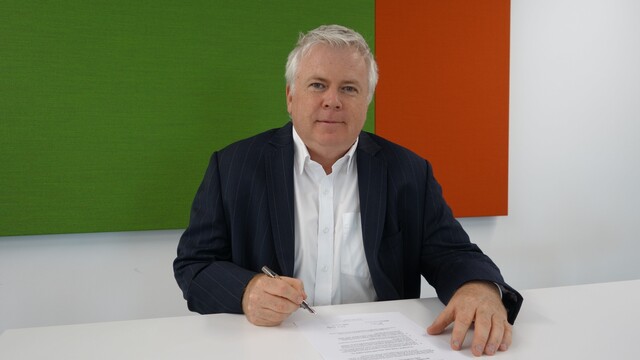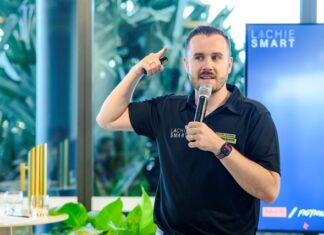Switzerland-based World Academy of Sport chief executive officer Chris Solly has encouraged the Sunshine Coast community to band together to explore the many possible long-term returns as an Olympic and Paralympic co-host in 2032.
Chris has more than three decades of experience in global sports development and management and was instrumental in the conception and creation of Olympic and Paralympic Games Knowledge Services (OGKS), a joint venture with the International Olympics Committee.
Prior to this, Chris was the inaugural chief executive of the Australian Ski Institute as a forerunner to the Olympic Winter Institute of Australia, an internationally recognised high-performance centre of athletic excellence, and has represented Australia at five Winter Universiade’s, on four occasions as Chef de Mission.
Chris has personal and professional ties to the region, collaborating closely with the University of the Sunshine Coast, and dipped into this wealth of knowledge while speaking at a Sunshine Coast 2032 function on 12 December.
“Every Games City has its opportunities and challenges and we can learn a lot from past success stories,” said Solly.
“I spent 11 years living in the north of England in a City called Manchester, they had the most outstanding CEO of the City, Sir Howard Burnstein, who was instrumental in the establishment of the World Academy of Sport and they have led the way globally as to how sport can make a difference to a city.
“Being a post-industrial town, with many residents still suffering from this socially and financially, Howard had a simple test each time we talked about a major event, Will it produce jobs? Will it regenerate a part of the city? Will it make residents more active?
“They were three simple questions that if the sports team could not answer, they knew there was no point even having a conversation. It forced the management and operational teams to think about how sport could support the community’s needs, not how the community could support sport.
“This is essentially the secret sauce in achieving both returns for the community and for sport, where one plus one equals 10.“
The benefits of being a Games City go far beyond hosting the events themselves, with Chris encouraging people from all walks of life to get behind creating sustainable benefits for the community.
“Australia has one of the best National Olympic Committees in the world, the support for our athletes is on the whole terrific for the population and size of the country, I would encourage people to start their own Games Journey, maybe not as an athlete, but as a community coach, as an administrator, completely outside the Games but using the deadline to achieve a personal or family goal by the start of the Games,” he said.
“You know the 2032 events coming to the Coast, so having a focus on those sports along with the other sports in the games and supporting young athletes to do their best in these sports is a great place to start. Then making sure that there are also easily accessible clubs for athletes to join those sports locally is also very important.
“Finally educating local fans to follow these aspirants and understand the sport itself is vitally important, this then extends the value of the engagement leading into the games and well after as a social legacy.”
This style of lateral thinking means the Sunshine Coast has the opportunity to see benefits across all industries when community stakeholders think beyond simply supporting sporting events.
“What is clear is that the Sunshine Coast has the most amazing natural assets with three interconnecting UNESCO Biospheres, and this is unique. In my opinion, this should be considered as one of the key opportunities to share the way of life this creates and what it means to future generations,” Chris said.
“We know through other work we do globally in education that the youth of today do feel that the future is uncertain because of global warming driven by today’s lifestyles. The Sunshine Coast bucks this trend, it is such a unique place, respecting the Indigenous way of life and molding this with a sustainable model for the future. Probably still not perfect, but a lot better than other environments.
“The university is a leader in supporting Australia’s island neighbours, many of whom are at the forefront of global climate change and its impacts. My advice would be to continue to work together to capitalise on this, perhaps we should aspire to have a Nobel Laurate in this space coming from the local community. This in many ways is an academic Games gold medal.
“We must remember, in my opinion, the most important sponsor of the Games is the taxpayer, the local community and working as a team with the Games’ structures is critical.”








